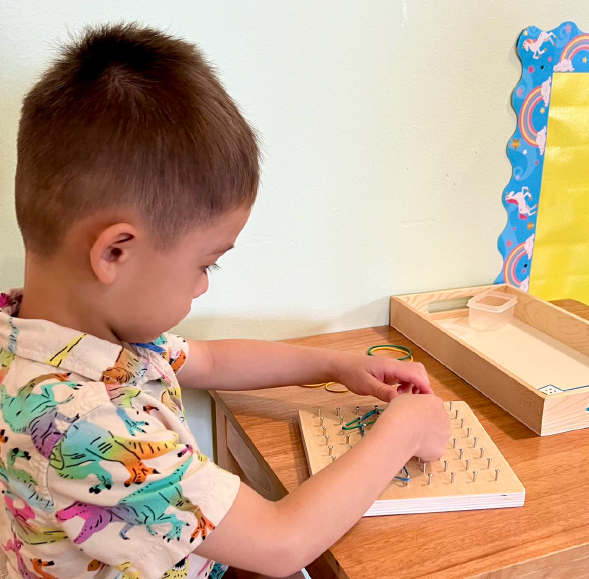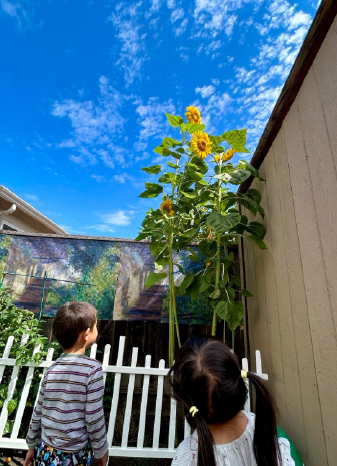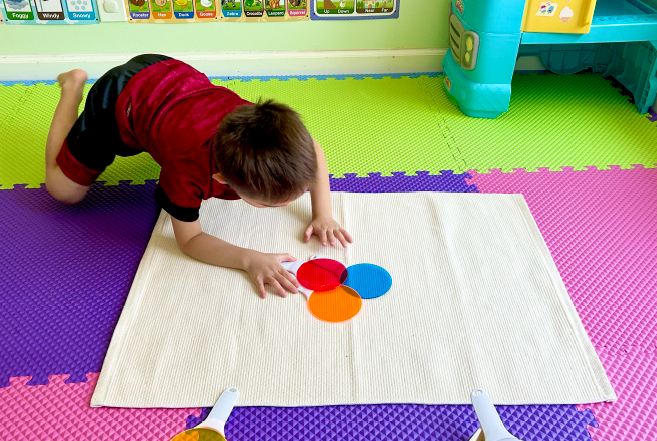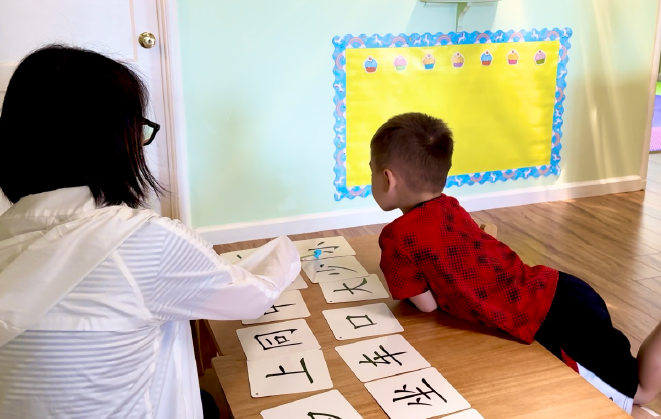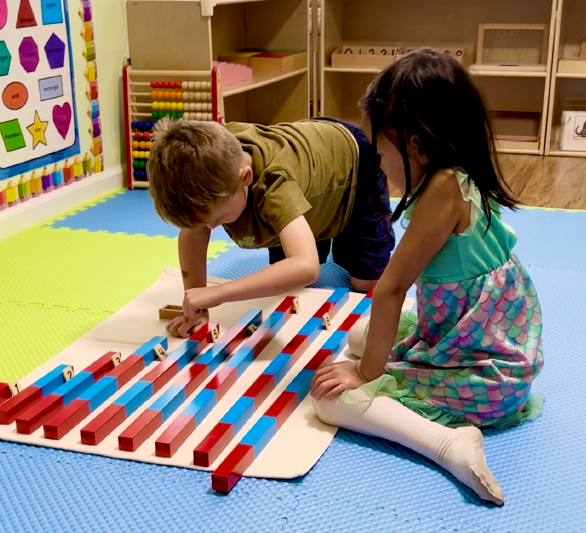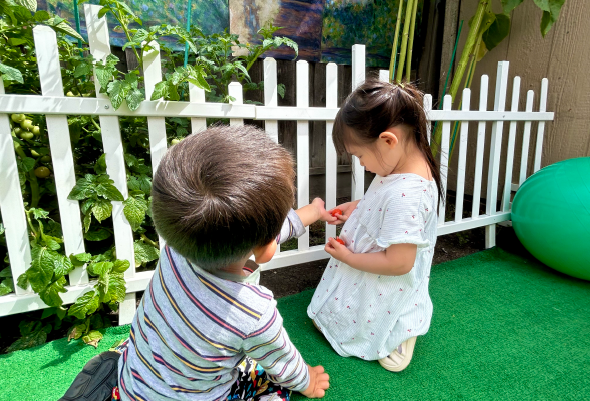Montessori Philosophy
Montessori classrooms are intentionally designed as “prepared environments” that go beyond traditional classrooms, serving as nurturing spaces that promote independence, intellectual development, and collaborative learning. Every area within the classroom is interconnected, encouraging children to explore and deepen their understanding of the world holistically. Our program is firmly rooted in the Montessori Philosophy, which informs and guides every aspect of these key areas.
Practical Life
In the Practical Life area, children engage in activities that build essential life skills, such as dressing, cleaning, and food preparation. Beyond these practical tasks, children develop key attributes like order, concentration, coordination, and independence. These experiences lay the foundation for their overall growth and confidence in managing everyday tasks.
